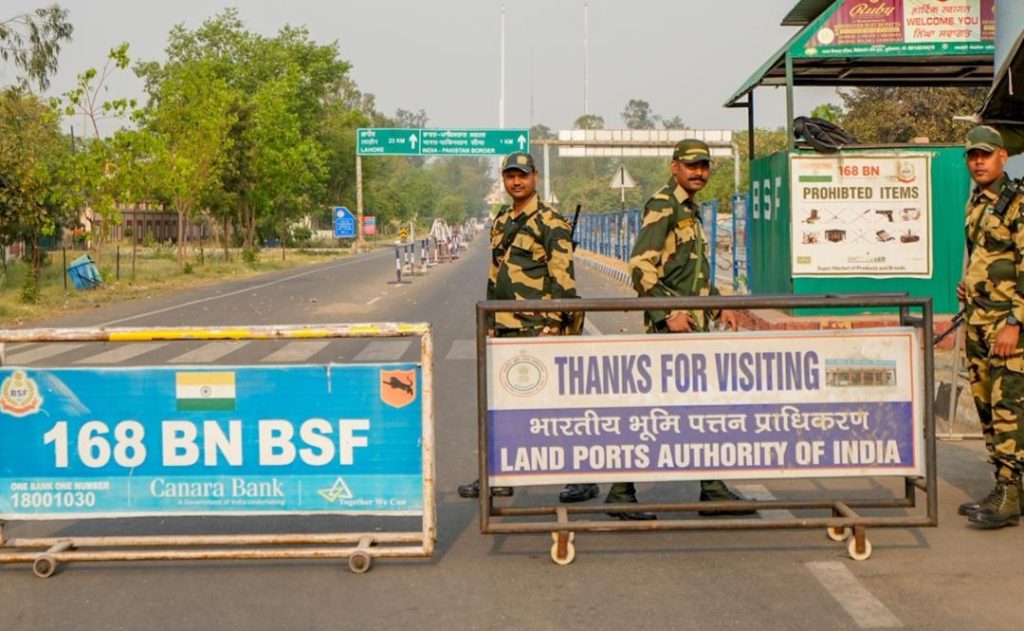
Attari-Wagah Border between India & Pakistan Completely Closed
In a significant development, the Attari-Wagah border between India and Pakistan has been completely closed, according to a report by PTI on Thursday. The border, which is a crucial point of entry and exit for thousands of people every day, remained shut for the entire day, with no person from either side crossing to the other side.
This move comes in the wake of a recent terrorist attack in Pahalgam, Jammu and Kashmir, which claimed the lives of 26 tourists. The attack sparked widespread outrage and condemnation from both sides of the border, with India accusing Pakistan-based militants of being behind the attack.
In the aftermath of the attack, Pakistan had taken the decision to shut the border and stop accepting its citizens who were being deported by India. This move was seen as a response to India’s decision to deport Pakistani nationals who were arrested and detained in India for various reasons.
The closure of the Attari-Wagah border has caused significant disruptions to the daily lives of thousands of people who rely on the border crossing for their livelihoods. The border is not only an important point of entry for tourists and traders but also serves as a meeting point for families and friends who live on both sides of the border.
The closure of the border has also raised concerns about the potential impact on trade and commerce between the two countries. India and Pakistan have a long-standing trade agreement, and the border crossing is an important point for the exchange of goods and services.
The decision to close the border was taken by the Pakistan government, and it is likely to have significant implications for the already strained relations between the two countries. The move is seen as a response to India’s decision to deport Pakistani nationals and to pressure India to take action against militants operating from its soil.
The closure of the border has also raised concerns about the potential impact on the lives of people who live in the border regions. Many people on both sides of the border rely on each other for their livelihoods, and the closure of the border could have significant economic and social implications.
The Attari-Wagah border has a long and complex history, and it has been the site of numerous tensions and conflicts between India and Pakistan in the past. The border was established in 1947, when India and Pakistan gained independence from British colonial rule. Since then, the border has been the site of numerous skirmishes and conflicts, including the Indo-Pakistani War of 1965 and the Kargil War in 1999.
Despite the tensions and conflicts, the Attari-Wagah border has also been the site of numerous cultural and economic exchanges between India and Pakistan. The border is home to numerous markets and bazaars, where people from both sides of the border come to buy and sell goods.
In recent years, the border has also become a popular tourist destination, with thousands of people from around the world visiting the border to witness the famous Beating Retreat ceremony, which takes place every evening.
The ceremony, which involves the lowering of flags on both sides of the border, is a symbol of the peaceful coexistence of the two nations and has become a popular tourist attraction. However, the closure of the border is likely to have a significant impact on the tourism industry, as well as the lives of people who rely on the border for their livelihoods.
In conclusion, the closure of the Attari-Wagah border between India and Pakistan is a significant development that is likely to have far-reaching implications for the lives of people on both sides of the border. The border has a long and complex history, and its closure is a response to the recent tensions and conflicts between the two countries. While the closure of the border may have significant economic and social implications, it is also an important step towards ensuring the security and safety of people on both sides of the border.






